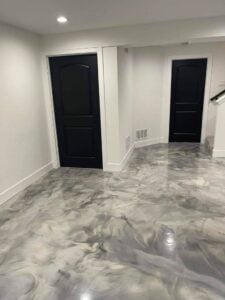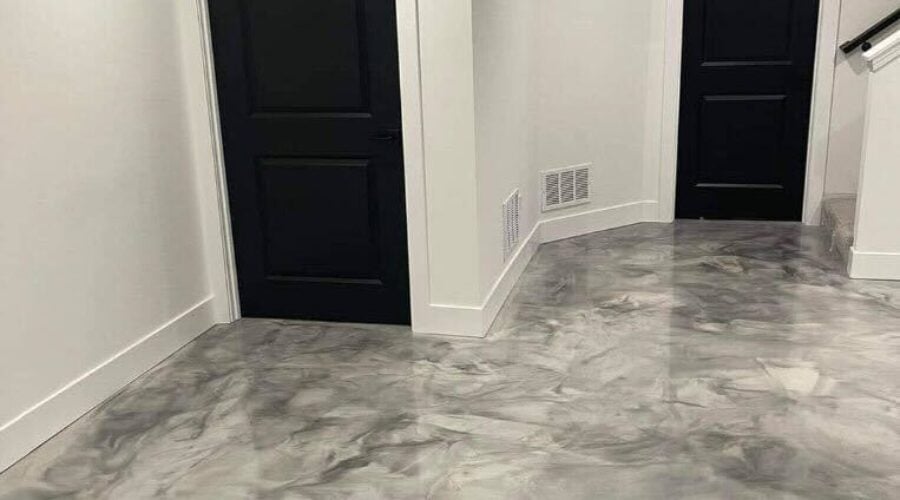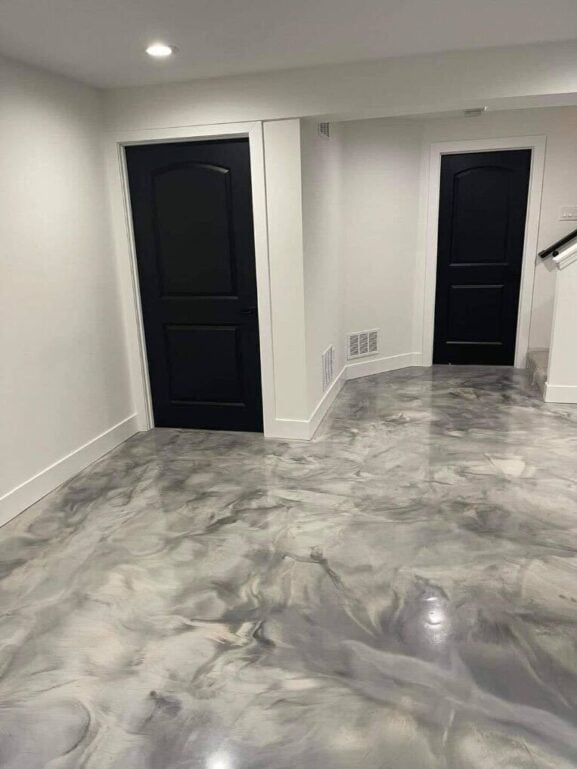The Ultimate Guide to Residential Concrete Flooring in Laurel: Pros and Cons
- Concrete flooring Sarasota County, Residential concrete flooring Englewood, Residential concrete flooring Laurel, Residential concrete flooring Osprey, Residential concrete flooring Palmetto, Residential concrete flooring South Venice, Residential concrete flooring Venice, Residential concrete flooring Venice Gardens
Residential concrete flooring in Laurel is a popular choice for homeowners due to its durability, aesthetic versatility, and eco-friendly nature. Here’s an ultimate guide to the pros and cons of residential concrete flooring:
Pros of Residential Concrete Flooring
- Durability and Longevity:
- High Resistance: Concrete floors are incredibly durable and resistant to scratches, dents, and stains, making them ideal for high-traffic areas.
- Long-Term Savings: Their long lifespan reduces the need for frequent replacements, saving homeowners money over time.
- Low Maintenance:
- Easy Cleaning: Concrete floors require minimal upkeep; regular sweeping and occasional mopping are usually sufficient.
- Health Benefits: They are less prone to harboring allergens, making them a healthier choice for indoor environments.
- Aesthetic Versatility:
- Customization Options: Concrete can be customized with various finishes, such as polishing, staining, or stamping, allowing homeowners to achieve unique designs.
- Modern Look: Polished concrete provides a sleek, modern appearance that complements contemporary and minimalist interior designs.
- Energy Efficiency and Sustainability:
- Thermal Mass: Concrete acts as a thermal mass, absorbing heat during the day and releasing it at night, which can reduce heating and cooling costs.
- Eco-Friendly: Concrete floors are sustainable due to their durability and potential for using existing slabs, reducing waste and environmental impact.
- Cost-Effectiveness:
- Initial Cost vs. Long-Term Savings: While the initial installation cost may be higher, concrete floors offer long-term savings through reduced maintenance and replacement needs.
Cons of Residential Concrete Flooring
- Hardness and Comfort:
- Uncomfortable: Concrete floors can be hard on joints and uncomfortable to stand on for extended periods, especially without area rugs or mats.
- Cold: They can feel cold underfoot, especially in colder climates, unless paired with radiant heating systems.
- Moisture Sensitivity:
- Moisture Issues: Without proper sealing, concrete floors can be susceptible to moisture damage, leading to mold or mildew growth.
- Cracking:
- Potential for Cracks: Concrete floors can develop cracks over time due to settling or temperature changes, although these can often be repaired or disguised.
- Environmental Impact of Production:
- Cement Production: While concrete floors themselves are sustainable, the production of cement has a significant environmental impact due to energy consumption and CO2 emissions.
Overall, residential concrete flooring in Laurel offers numerous benefits, including durability, low maintenance, and aesthetic versatility, making it a popular choice for many homeowners. However, it also has some drawbacks, such as hardness and potential moisture issues, which should be considered when deciding on flooring options.

Why Residential Concrete Flooring in Osprey is the Future of Home Design
Residential concrete flooring in Osprey is poised to be a significant part of the future of home design due to its numerous benefits, which align

The Ultimate Guide to Residential Concrete Flooring in Laurel: Pros and Cons
Residential concrete flooring in Laurel is a popular choice for homeowners due to its durability, aesthetic versatility, and eco-friendly nature. Here’s an ultimate guide to

Common Myths About Palmetto Residential Concrete Flooring – Debunked!
Residential concrete flooring in Palmetto is often misunderstood due to various myths and misconceptions. Here are some common myths debunked: Common Myths About Residential Concrete

Best Sealers and Coatings for Residential Concrete Flooring in Englewood
Choosing the best sealers and coatings for residential concrete flooring in Englewood depends on several factors, including the desired finish, environmental conditions, and level of

Venice Gardens Residential Concrete Flooring vs. Hardwood: Which One Wins?
When comparing Venice Gardens residential concrete flooring and hardwood, each option has its unique advantages and disadvantages. Here’s a breakdown of the key differences: Residential

Eco-Friendly Living: The Sustainability of Residential Concrete Flooring in South Venice
Residential concrete flooring in South Venice is increasingly recognized for its sustainability, offering a durable, low-maintenance, and eco-friendly solution for homeowners. Here are some key

How to Choose the Best Finish for Residential Concrete Flooring in Venice
Choosing the best finish for residential concrete flooring in Venice involves considering several factors, including the intended use of the space, climate conditions, maintenance needs,


